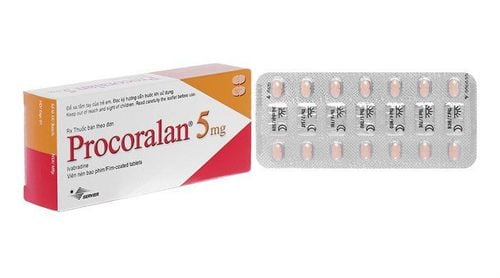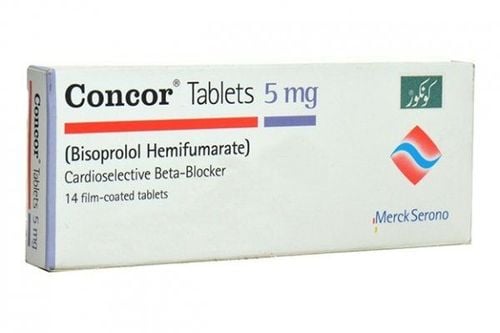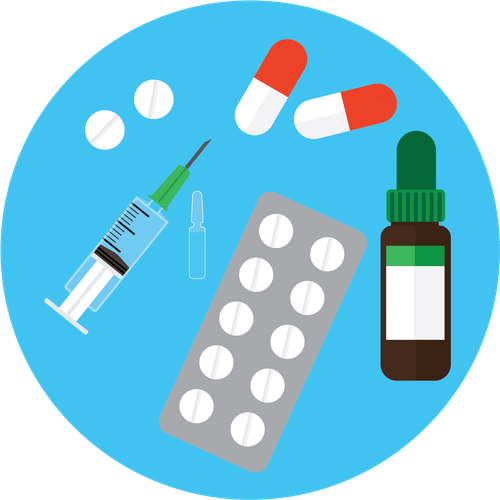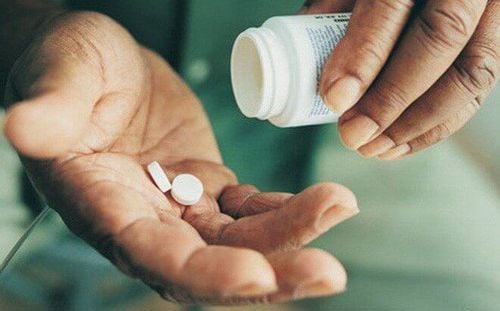This is an automatically translated article.
The article was professionally consulted by Dr. Nguyen Van Duong - Interventional Cardiologist - Cardiovascular Center - Vinmec Central Park International General Hospital.Heart disease can range from blocked arteries to infections, and these diseases affect your heart and body in different ways. It can lead to problems like heart attack and stroke, and is the most common cause of death for both men and women in the United States. So, how can heart disease affect you?
1. What diseases does heart disease include?
Heart disease is a general term to describe many different conditions that affect a person's heart health. Heart disease describes conditions that affect a person's heart muscle, valves, coronary arteries, or heart rhythm. Each of these components plays an important part in overall heart health. When a person is diagnosed with heart disease, it is important for them to make lifestyle changes to slow the progression of the disease. Heart disease can cause many complications that can be fatal if left untreated. According to the Centers for Disease Control and Prevention (CDC), an estimated 1 in 4 deaths in the United States is due to heart disease. Specifically, heart disease is the following diseases: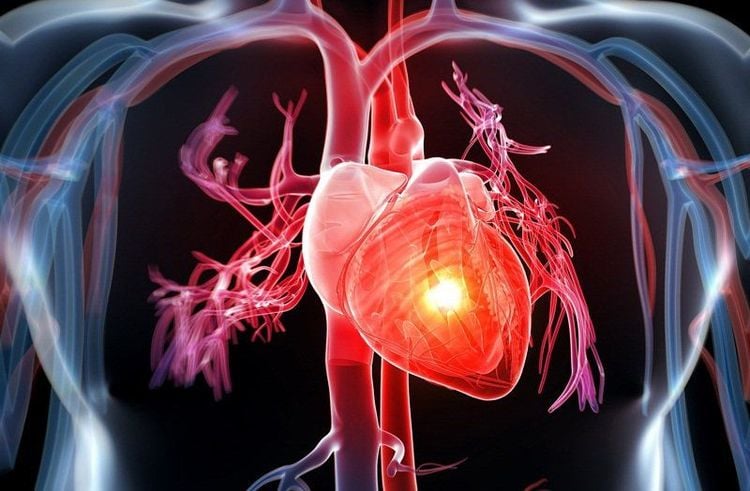
1.1. Heart failure
Heart failure occurs when the heart can't pump enough blood around the body. Although the heart muscle is strong, over time it can become affected and make it harder to do the job it used to. The heart begins to compensate by beating faster, building more muscle, or stretching to accommodate more blood. Over time, these compensatory methods can affect heart function and lead to heart failure. Consequences can cause shortness of breath, dizziness, confusion, and fluid accumulation in the body, causing edema.1.2. Heart attack
A heart attack occurs when the coronary arteries narrow to the point of cutting off the blood supply to the heart. Usually, this is the result of a cholesterol buildup in the arteries, known as atherosclerosis. Some of the cholesterol breaks down and can clog a blood vessel. Heart cells begin to die when they are deprived of oxygen. Symptoms include shortness of breath and severe chest pain that may radiate to the back, jaw, or left arm. However, some women may experience different symptoms related to coronary stenosis such as fatigue, shortness of breath...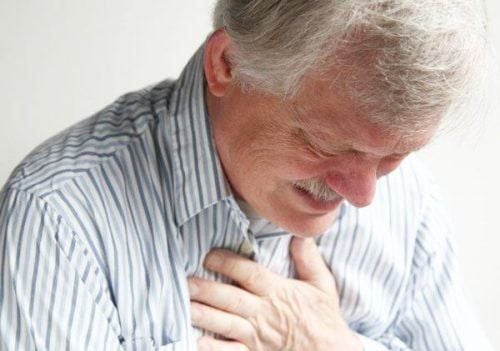
1.3. Stroke
When the heart is not working efficiently, blood clots are more likely to form in the blood vessels. A stroke occurs when one of these clots forms in a blood vessel in the brain and cuts off blood flow in the vessel. This is called an ischemic stroke with symptoms that include:Numbness on one side of the body Confusion Difficulty speaking Loss of coordination between different parts of the body or inability to hold balance If a stroke patient is not treated in time, too many brain cells can die in important areas of the brain such as the areas that control voice, strength, memory, etc. If a person is able to survive a stroke, these areas of brain function may never return to where they were before or take a long time to recover.
See more: Cardiovascular disease early screening avoids the risk of stroke
1.4. Pulmonary embolism
A pulmonary embolism is similar to a stroke, but the blocked blood vessel is in the lungs instead of in the brain. Symptoms include shortness of breath, chest pain when breathing, and bluish skin. Because the body is quickly deprived of oxygen, pulmonary embolism can be fatal, so this is an emergency.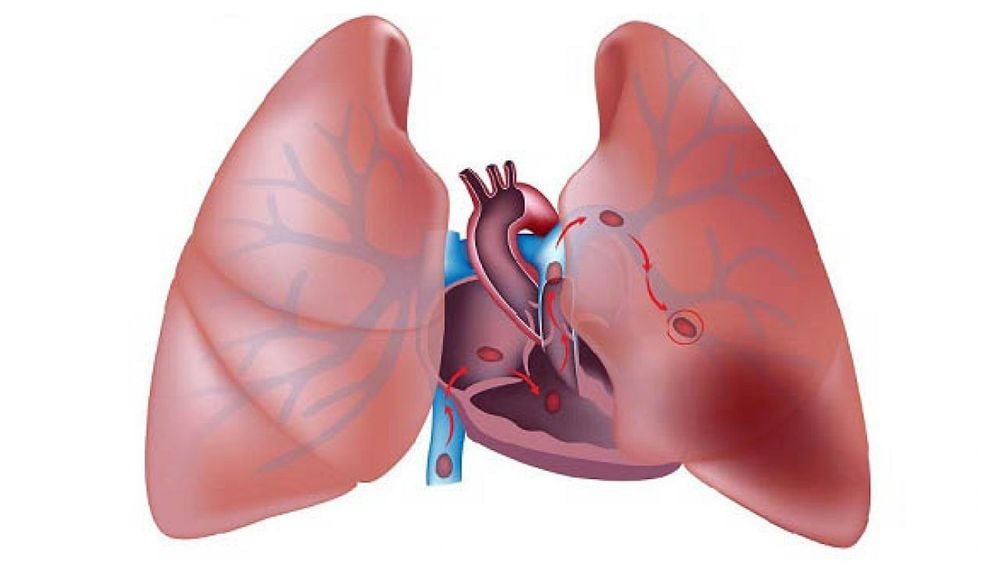
1.5. The heart stops beating
This condition is defined as when the heart suddenly stops beating. This condition is usually caused by an electrical disturbance in the heart. In addition, arrhythmias caused by heart disease can lead to cardiac arrest and will lead to death if not treated immediately.1.6. Peripheral artery disease (PAD)
The same narrowing that occurs in coronary artery disease can occur in the arteries that supply blood to the arms and legs. The main symptom of PAD is severe leg pain when walking.1.7. Atrial fibrillation
Atrial fibrillation (AFib) is a rarely fatal heart condition. It causes the upper chambers of the heart to beat irregularly or "flicker" instead of throbbing. This can cause a person to feel an irregular heartbeat and a feeling of chest tightness. Atrial fibrillation can increase your risk of having a stroke or heart failure. Because the atria beat irregularly, blood can easily pool in the atria and form blood clots.
1.8. Angina pain
Angina is the medical term for chest pain. This happens when the heart muscle doesn't get enough oxygen. The result is a feeling of squeezing or squeezing in the chest. There are different types of angina, and the most common types are stable angina and unstable angina. Stable angina is also known as exercise angina. Because exercise is strenuous activity, it increases the body's need for oxygen, which can affect the heart muscle. Unstable angina is a more concerning symptom because it is chest pain that occurs but is not related to exertion.1.9. Sex-related heart disease symptoms
Women and men may have different symptoms related to their heart disease. For example, women are more likely to develop heart disease in the smaller arteries that branch from the coronary arteries. As a result, women may experience different symptoms associated with heart disease, including nausea, shortness of breath, vomiting, or stomach pain.Men are more likely to have heart disease due to affected or blocked major coronary arteries. This can cause symptoms of heart disease, such as chest pain, tightness or pressure in the chest, especially during stress or physical activity.
2. How does heart disease affect your body?
2.1. Coronary artery disease
With less blood flow, your heart doesn't get the oxygen it needs and causes chest pain, also known as angina, especially when you exercise or work hard. This condition can also affect the heart's ability to pump blood and make the rest of the body lack oxygen. Without enough oxygen, your cells won't work as well as they should and you may run out of breath or feel more tired than usual. If the plaque breaks off and completely blocks the artery, the person will experience chest pain.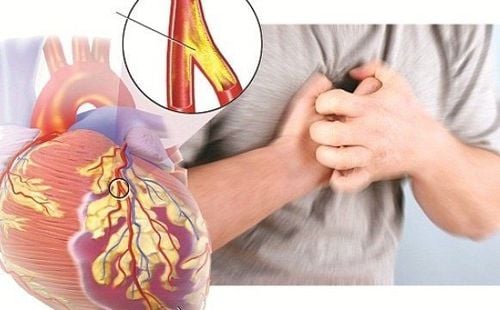
2.2. Impact of heart valve disease
Some people show no signs of valvular disease for many years, while others develop symptoms suddenly. Either way, it usually gets worse over time. Heart valve problems can make your heart work harder and cause blood flow problems, so you may experience the following symptoms:Fatigue faster than usual Shortness of breath Swelling in the chest legs, feet, ankles or abdomen. =>>> See more: Common heart valve diseases and treatment solutions at Vinmec
2.3. Short-term complications
Heart disease can greatly affect a person's quality of life. If a person has angina, they may shy away from exertion for fear of chest pain or other uncomfortable symptoms. People with heart failure may experience swelling, dizziness, and other symptoms that can affect their ability to complete daily tasks. A person with a diagnosed heart condition also has to live with the stress of knowing they have a long-term condition that can lead to complications of heart disease, such as a heart attack or stroke.
2.4. Long-term prognosis and potential complications
The long-term prognosis for people with heart disease depends on many factors, including the type of cardiovascular disease, the person's response to medications, and the severity of the heart disease. If a doctor diagnoses a person with heart disease, the person needs to follow medication and a healthy lifestyle to prevent complications that make heart disease worse.Heart disease can leave many dangerous complications if not examined and treated promptly. Therefore, when there are signs of cardiovascular disease, patients should go to medical centers and specialized hospitals for examination, early screening and the best treatment.
Vinmec Cardiology Department has always received much praise and satisfaction from domestic and international customers, being pioneers in successfully applying the world's most advanced techniques in the treatment of cardiovascular diseases. .
A team of highly qualified and experienced specialists: qualified doctors from Master's to Professor's and Doctor's degrees, reputable in medical treatment, surgery, interventional cardiac catheterization. Intensive training at home & abroad. In particular, Prof. TS.BS Vo Thanh Nhan - Cardiology Director of Vinmec Central Park was recognized as the first and only expert in Vietnam to be awarded the "Proctor" certificate on TAVI. State-of-the-art equipment, comparable to major hospitals in the world: The most modern operating room in the world; The most modern silent magnetic resonance imaging machine in Southeast Asia; The CT machine has a super-fast scanning speed of only 0.275s/round without the use of drugs to lower the heart rate; The 16-sequence PET/CT and SPECT/CT systems help detect damage to the cardiovascular organs early even when there are no symptoms of the disease. Applying the most advanced advanced cardiovascular techniques in the world in treatment: Painless open heart surgery; Percutaneous aortic intervention without general anesthesia; Treatment of mitral regurgitation through the catheter has a success rate of 95%; Ventricular-assisted artificial heart transplantation for patients with end-stage heart failure prolongs quality of life beyond 7 years. Cooperating with leading cardiovascular centers in Vietnam and the world such as: National Heart Institute, Cardiology Department of Hanoi Medical University, University of Paris Descartes - Georges Pompidou Hospital (France), University of Pennsylvania (France), University of Pennsylvania (France), University of Pennsylvania (France). United States)... with the aim of updating the most modern cardiovascular treatments in the world. In addition, in order to improve the quality of services and accompanying utilities, Vinmec now has many packages of examination and screening for cardiovascular disease very early, so you can rest assured with the examination and screening process. , medical treatment at Vinmec.
To register for examination and treatment with the leading doctors of the Cardiology Department at Vinmec International General Hospital, please click the "Contact Us" button on the website, or register for an online examination.
Please dial HOTLINE for more information or register for an appointment HERE. Download MyVinmec app to make appointments faster and to manage your bookings easily.
References: webmd.com, healthline.com





